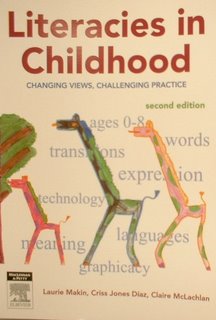my passion

passionfruit flower from my vine

Tomorrow marks the second anniversary of setting up this blog. So in honour of that I return to what is my primary passion in research - conversation analysis. While my various posts recently have meandered around various aspects of research, particular in relation to supervision of higher degrees students, I maintain my own interest in CA as a research methodology. I particularly enjoy the distance from literacy pedagogy offered by some of the guiding methodological principals developed within CA.
today i've been re-reading a paper by Schegloff, Between micro and macro: contexts and other connections. What I liked about this writing was the employment of Schegloff's ideas about establishing relevance of context to members and how that relevance is evinced in the interaction that ensues. The article problematises context; something that I think is important in the field of literacy education where some take for granted concepts like modelling, guided instruction or explicit teaching without providing a clear description of what the concepts entail in the classroom according to empirical evidence that encompasses all participants.



